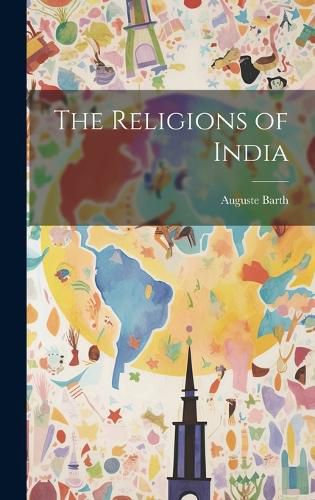Readings Newsletter
Become a Readings Member to make your shopping experience even easier.
Sign in or sign up for free!
You’re not far away from qualifying for FREE standard shipping within Australia
You’ve qualified for FREE standard shipping within Australia
The cart is loading…






In The Religions of India, noted scholar of the comparative study of religion, Auguste Barth explores the religious traditions of India, offering an accessible introduction to their often complex doctrines, theories, and ceremonies. This groundbreaking work examines the religious practices of both major and minor religions in India, including Hinduism, Buddhism, Jainism, Sikhism, Zoroastrianism and more.
This work has been selected by scholars as being culturally important, and is part of the knowledge base of civilization as we know it.
This work is in the "public domain in the United States of America, and possibly other nations. Within the United States, you may freely copy and distribute this work, as no entity (individual or corporate) has a copyright on the body of the work.
Scholars believe, and we concur, that this work is important enough to be preserved, reproduced, and made generally available to the public. We appreciate your support of the preservation process, and thank you for being an important part of keeping this knowledge alive and relevant.
$9.00 standard shipping within Australia
FREE standard shipping within Australia for orders over $100.00
Express & International shipping calculated at checkout
In The Religions of India, noted scholar of the comparative study of religion, Auguste Barth explores the religious traditions of India, offering an accessible introduction to their often complex doctrines, theories, and ceremonies. This groundbreaking work examines the religious practices of both major and minor religions in India, including Hinduism, Buddhism, Jainism, Sikhism, Zoroastrianism and more.
This work has been selected by scholars as being culturally important, and is part of the knowledge base of civilization as we know it.
This work is in the "public domain in the United States of America, and possibly other nations. Within the United States, you may freely copy and distribute this work, as no entity (individual or corporate) has a copyright on the body of the work.
Scholars believe, and we concur, that this work is important enough to be preserved, reproduced, and made generally available to the public. We appreciate your support of the preservation process, and thank you for being an important part of keeping this knowledge alive and relevant.